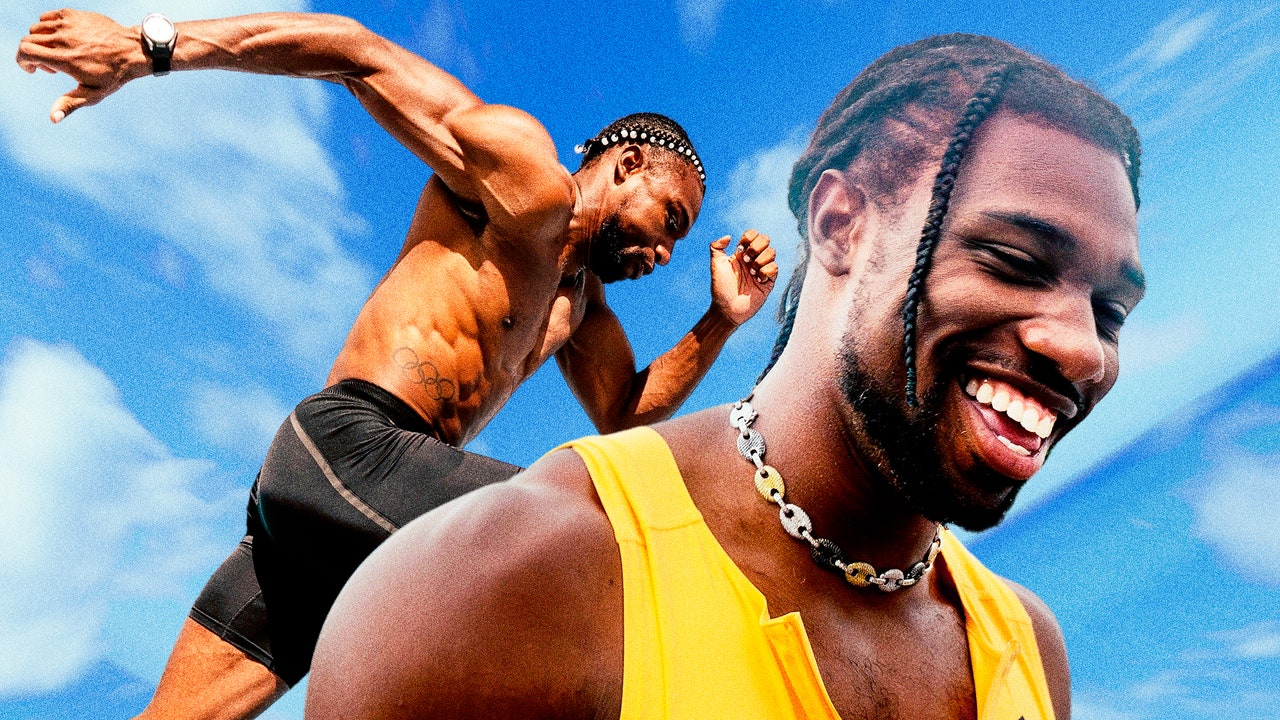He’s looking for nothing less than a ground-up rethinking of track’s place in the sports-entertainment landscape, a fervent believer in the sport’s product but an outspoken critic of how it is packaged and sold to casual fans. It explains why this year, he enjoyed watching as a war of words played out between top 1,500-meter medalists Josh Kerr and Jakob Ingebrigtsen, stoking a rivalry that needed zero knowledge of their best times to understand. It’s why Lyles hops and struts down the track with WWE-style flair before coiling into his blocks.
“I want to know, how are we going to shift the idea of track and field in the people’s mind to where this is entertainment?” Lyles said.
But more often, he finds himself thinking about track’s future in terms of other sports’ present. Though contractually barred from detailing the exact size of his new, multimillion-dollar Adidas deal that is said to be the sport’s richest since Bolt, Lyles wants badly to convey how many digits it contains so that up-and-coming athletes understand the NBA and NFL aren’t the only places where top American athletes can get paid. He also wants track’s next generation to take something else from his example: that winning medals by itself isn’t enough to register with the wider public.
“Now people can say, Oh, maybe I do need to be focusing more on my interviews, how people perceive me, marketing—winning the medals and doing the stuff around it,” he said.
“I’m not here to try and brag how much I make,” he added. “That’s truly not my end goal. I truly want to make sure that when I leave the sport there is more than just one athlete who’s making the type of money that I’m making. Because I want it to grow.”
Not long ago, Lyles met up with Carl Lewis to film a Tide commercial together—one athlete vying to win four golds at a single Olympics alongside the last track-and-field athlete to actually do it, back in 1984.
Lewis emphasized for me the difficulty of Lyles’s mission. “Our sport can be really petty, we don’t see the big picture,” he said. “So now, what we should be doing is actually saying, Man, this could be an incredible thing to happen, so how can we make this happen? And let everyone understand we’re trying to help build this sport, but track doesn’t think like that.”
Lyles does. During interviews, he often speaks about the sport’s big-picture fight for relevance. The idea of Lyles serving on one or other of the sport’s governing bodies doesn’t seem out of the question.
“I don’t know if I’m the right person for it, but I feel that if I was to be put in that position, I feel that I could create a team that could be able to get things done,” Lyles said. “And that might not look anything like how we have it today. And I’m not saying that I want to be that person in the future. But I do think about how to handle things, not only from being in the sport and running currently, but how it would look once I’m done, and how to stay relevant and how to stay in the game and who are the power players, because knowing that is how you know how to create change.”
This summer, Lyles will pursue greatness in 10- and 20-second bursts. But his real race will be measured in decades—and winning will require him doing everything behind the scenes, and winning everything in front of the camera, too.
Sure, there are his opponents on the track. But they’re just running that day’s race. He’s focused on the bigger one. “At this point, I’m like, yeah, it’s really me versus me,” he said. “That’s kind of how you have to be. But truly, that’s how I’m thinking going into the Olympics and beyond at this point—because I’m trying to do things that people haven’t done.”

